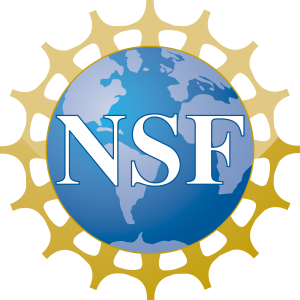 The following is a cross-directorate Dear Colleague Letter (DCL) on the removal of deadlines for the Secure and Trustworthy Cyberspace (SaTC) Program.
The following is a cross-directorate Dear Colleague Letter (DCL) on the removal of deadlines for the Secure and Trustworthy Cyberspace (SaTC) Program.
Dear Colleague:
The Directorates for Computer and Information Science and Engineering (CISE), Education and Human Resources (EHR), Engineering (ENG), Mathematical and Physical Sciences (MPS), and Social, Behavioral, and Economic Sciences (SBE) wish to provide notice about an important upcoming change to submission windows for all proposals to the National Science Foundation’s (NSF) Secure and Trustworthy Cyberspace (SaTC) program.
In order to allow principal investigators (PIs) more flexibility and to better facilitate interdisciplinary research across all disciplines, SaTC is removing deadlines for submission of solicited proposals across all its designations [CORE, Transition to Practice (TTP), and Education (EDU)] and size categories (Small, Medium), effective October 1, 2018. (The Frontier category will not be offered in FY 2019, but we anticipate resuming this size category in FY 2020.) Another associated change is that individuals may participate as a PI, co-PI or senior personnel in at most three SaTC proposals in a given fiscal year (i.e., October 1 through September 30), including in at most one proposal designated as CORE; at most one proposal designated as TTP; and at most one proposal designated as EDU. These limits are unrelated to any limits imposed in other NSF program solicitations.
For those unfamiliar with the no-deadline submission process, frequently-asked questions and other relevant information will be provided on the SaTC program webpage.
By accepting proposals at any time, PIs will have the opportunity to think more creatively, build strong collaborations, converse with Program Directors and carefully prepare proposals with the potential to make significant research and education contributions. We anticipate that the elimination of deadlines will reduce the burden on institutions and the community by extending the submission period throughout the year rather than to annual deadlines.
With this change, the SaTC program will implement a guideline in which a declined proposal (or substantively similar proposal/topic by the same PI team) in a given fiscal year (e.g., FY 2019) is ineligible for resubmission to that designation until the next fiscal year (FY 2020 in this example). This moratorium will allow PIs the time required to digest the results of the merit review and revise/restructure the declined proposal accordingly. Any proposal considered too similar to a previous proposal that is under the moratorium period will be returned without review. Similarly, any proposal submitted to SaTC that the program decides has not been substantially revised will be returned without review, as outlined in the NSF Proposal and Award Policies and Procedures Guide (PAPPG).
This change applies only to submission of solicited proposals to the SaTC program. PIs submitting proposals to other NSF solicitations, such as the Faculty Early-Career Development (CAREER) or CISE Research Initiation Initiative (CRII) programs, must meet the respective deadlines of the corresponding solicitations.
Questions about this DCL should be directed to the SaTC Program Director team listed on the SaTC program webpage.
Sincerely,
Erwin Gianchandani
Acting Assistant Director, CISE
Jim Lewis
Acting Assistant Director, EHR
Dawn Tilbury
Assistant Director, ENG
Anne Kinney
Assistant Director, MPS
Fay Lomax Cook
Assistant Director, SBE









